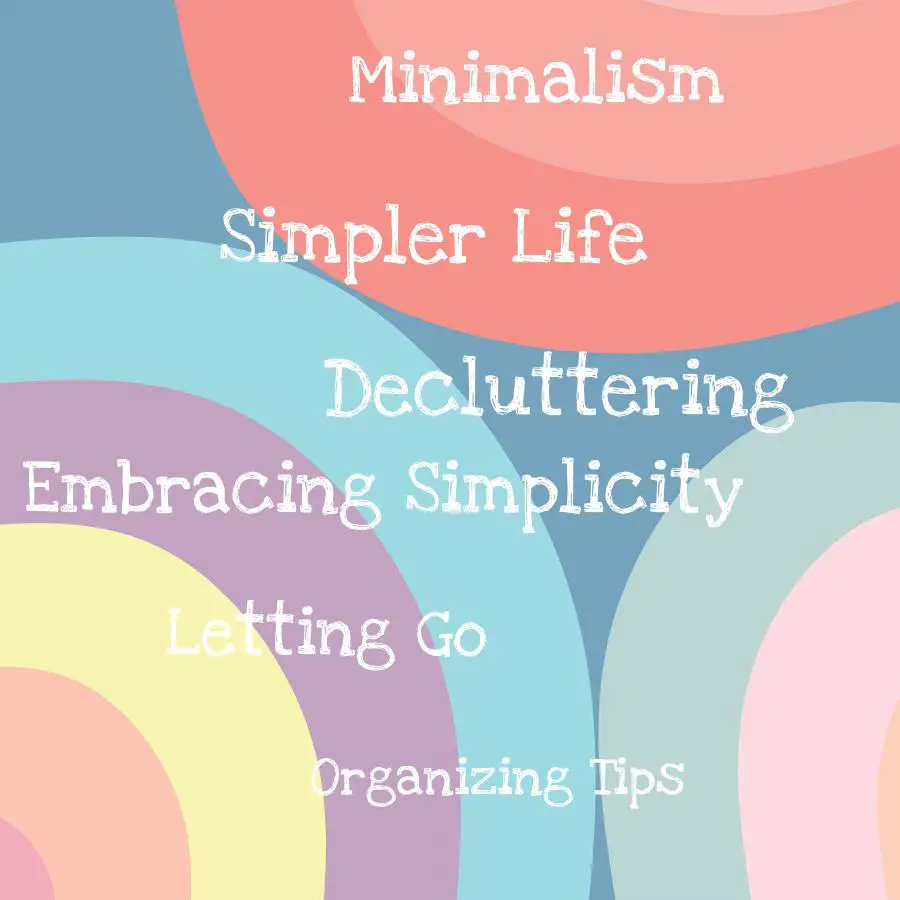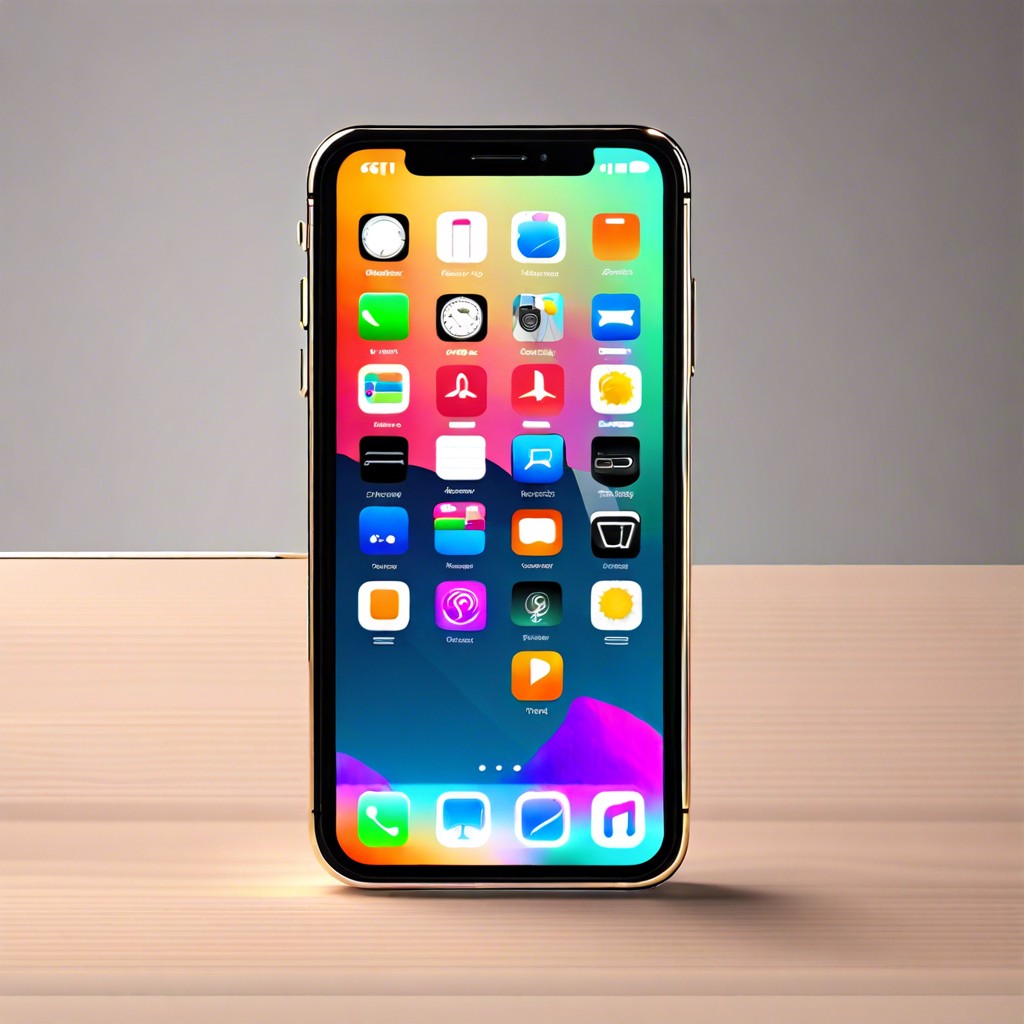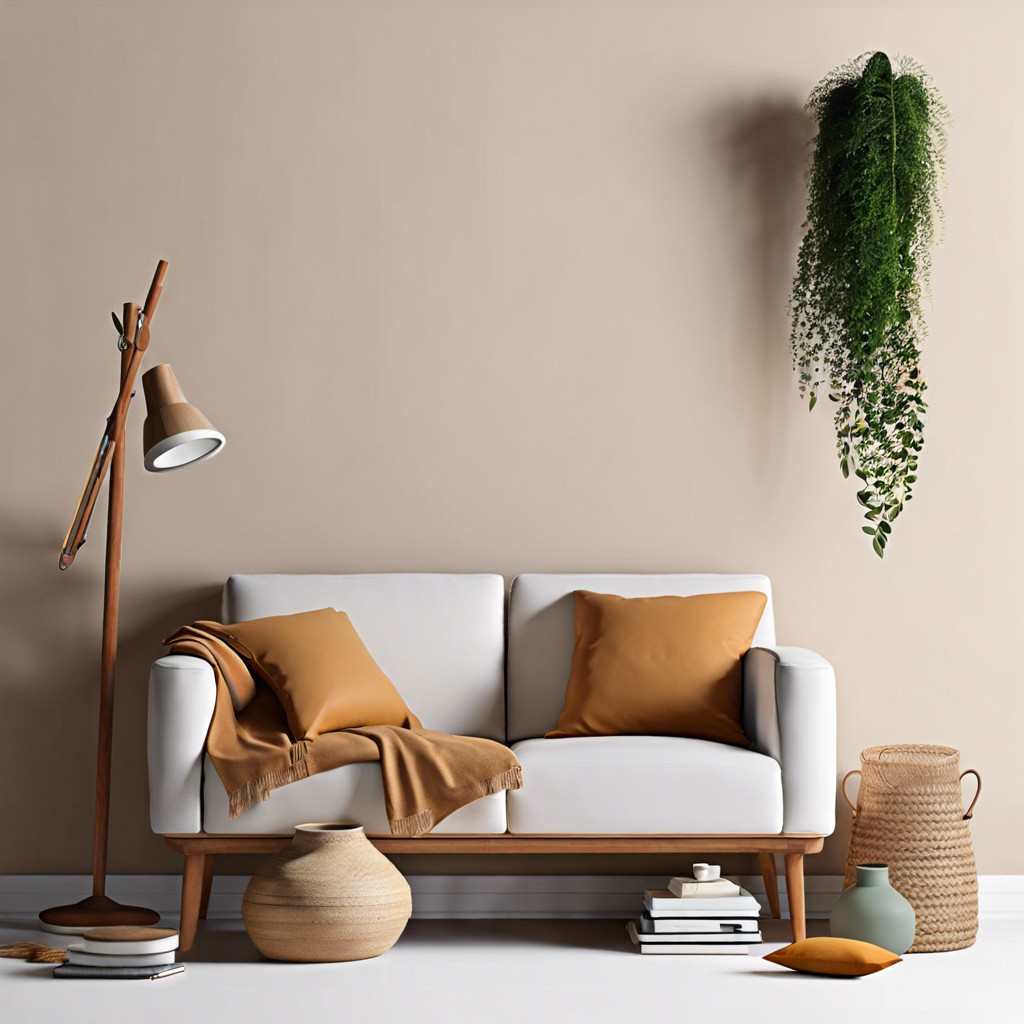Last updated on
In this blog post, I will share practical tips for decluttering and embracing minimalism to simplify your life.
As a child, I was always fascinated by the idea of minimalism. I remember watching my mother meticulously clean and organize our home, and wondering how she managed to keep everything in its place.
As I grew older, however, I began to realize that the clutter in my own life was getting out of control. My closet was overflowing with clothes that no longer fit or weren’t my style anymore.
My bookshelves were packed with novels that I had read once and would probably never touch again.
It wasn’t until a few years ago that I discovered the true power of decluttering and minimalism. By letting go of the things that no longer served me, I was able to create space for the things that truly mattered: relationships, experiences, and personal growth.
In this blog post series, we will explore how decluttering can transform your life – from reducing stress and increasing productivity to improving your mental health and overall well-being. Whether you’re just starting out on your minimalist journey or are looking for new ways to simplify your life even further, this blog is for you.
So grab a cup of tea (or coffee!), sit back, relax, and let’s dive into the art of letting go and embracing a simpler life!
Table of Contents
Defining Decluttering

At its core, decluttering is about simplifying your life by getting rid of the things that no longer serve you. It’s not just about cleaning out your closet or organizing your kitchen cabinets – it’s a mindset shift that can transform the way you live and think.
For me, decluttering was a gradual process. I started small by going through my clothes and donating anything I hadn’t worn in over a year.
Then I moved on to books, papers, and other items around my home.
As I let go of more and more possessions, something interesting happened: I began to feel lighter both physically and mentally. The weight of all those unused items had been holding me back without even realizing it.
Decluttering isn’t just about creating physical space; it’s also an opportunity to examine our relationship with material possessions. By letting go of what we don’t need or use anymore, we make room for what truly matters in life – relationships with loved ones, experiences that bring us joy and personal growth opportunities.
In the next section of this article series on minimalism & decluttering , we’ll explore how embracing minimalism can help us lead simpler lives filled with purposeful intentionality rather than cluttered chaos!
Minimalism Explained
Minimalism is often misunderstood as a lifestyle of deprivation or extreme frugality. However, it’s much more than that.
At its core, minimalism is about intentionally simplifying your life by focusing on what truly matters to you and letting go of the rest.
For me, minimalism was a way to reclaim control over my life. I had been feeling overwhelmed and suffocated by all the stuff in my home – clothes I never wore, books I never read, knick-knacks that served no purpose other than collecting dust.
But when I started decluttering and embracing minimalism principles like “less is more” and “quality over quantity,” something amazing happened: not only did my physical space become less cluttered but so did my mind.
I found myself with more time for hobbies that brought me joy instead of constantly cleaning up after myself or organizing things around the house. My relationships improved because they were no longer overshadowed by material possessions or superficial desires.
In short: Minimalism isn’t just about getting rid of stuff; it’s about creating space for what truly matters in your life – whether that be people you love spending time with or activities you enjoy doing most!
Benefits of Simplicity
1. Reduced stress: Cluttered spaces can lead to cluttered minds, causing unnecessary stress and anxiety in our daily lives.
2. Increased productivity: When we have fewer distractions around us, it’s easier to focus on what really matters – whether it’s work projects or spending quality time with loved ones.
3. Improved mental health: Studies have shown that living in a clean and organized environment can positively impact our mental health by reducing feelings of overwhelm and promoting relaxation.
4. Financial freedom: By consuming less and focusing on what we truly need rather than want, we free up resources for experiences or investments that will bring long-term happiness instead of short-term gratification.
By embracing simplicity through decluttering and minimalism practices, you too can experience these benefits firsthand!
Letting Go Process
Letting go of our possessions can be a difficult process. We often attach sentimental value to items that we no longer need or use, making it hard to part with them.
However, the letting go process is an essential step in decluttering and embracing minimalism.
When I first started decluttering my home, I found myself struggling to let go of certain items. A dress that I wore on a special occasion years ago held memories that were hard to detach from the physical item itself.
But as I began sorting through my belongings and asking myself if each item truly brought me joy or served a purpose in my life currently, it became easier for me to let things go.
One helpful tip is taking photos of sentimental items before donating or selling them – this way you still have the memory without cluttering your space with unnecessary objects.
Remember: letting go doesn’t mean forgetting about cherished memories; rather it means creating space for new experiences and opportunities in your life!
Organizing Tips
1. Start small: If you’re feeling overwhelmed by clutter, start with just one area of your home or office.
This could be a single drawer, closet shelf or even just your desk.
2. Sort items into categories: When going through items in any given space, sort them into categories such as “keep”, “donate” or “throw away”.
This will make it easier to see what needs to go and what can stay.
3. Use storage solutions wisely: Invest in storage solutions like baskets, bins and shelves but use them wisely so they don’t become another source of clutter themselves.
Remember that decluttering isn’t always easy – sometimes it means letting go of sentimental items or facing difficult decisions about what truly adds value to our lives. But by embracing minimalism and simplifying our surroundings we create more time for ourselves; time which can be spent on experiences rather than material possessions.
So take these organizing tips with you on this journey towards simplicity – one step at a time!
Mindful Consumption
One of the key principles of minimalism is mindful consumption. It’s about being intentional with what you bring into your life and making sure that it aligns with your values and goals.
This can be a difficult concept to grasp, especially in a world where we’re constantly bombarded by advertisements telling us that we need more stuff to be happy.
But as I began my own journey towards minimalism, I realized that mindless consumption was one of the main reasons why my life felt so cluttered and overwhelming. Every time I bought something new, it added another item to my already overflowing closet or bookshelf.
So instead of buying things on impulse or out of habit, I started asking myself some tough questions before making any purchases: Do I really need this? Will it add value to my life? Is there something else that could serve the same purpose?
By adopting this mindset, not only did I save money but also created space for things in which truly mattered – experiences rather than material possessions.
Decluttering isn’t just about getting rid off physical items; it’s also about changing our relationship with consumer culture altogether. By practicing mindful consumption habits like these ones mentioned above ,we can learn how letting go leads us towards embracing a simpler yet fulfilling lifestyle!
Sustainable Living
As I continued on my journey towards minimalism, I began to realize that it wasn’t just about decluttering and simplifying my physical possessions. It was also about embracing a more sustainable way of living.
I started paying attention to the impact that my choices were having on the environment – from the products I used in my home to the food I ate. And as someone who had always been passionate about protecting our planet, this shift towards sustainability felt like a natural extension of my minimalist lifestyle.
By reducing waste and choosing eco-friendly alternatives, not only was I doing something good for the planet but also for myself. Living sustainably has helped me save money by consuming less and being mindful of what truly matters in life.
Incorporating sustainable practices into your minimalist lifestyle can be as simple as using reusable bags at grocery stores or investing in energy-efficient appliances for your home. By making small changes over time, you’ll find yourself living a simpler yet more fulfilling life while contributing positively to our world’s future.




